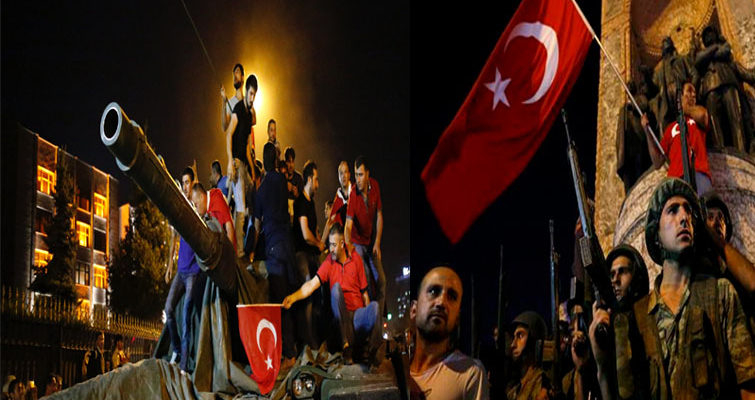A revolutionary coup was attempted in Turkey against state institutions on 15th July 2016 by military. However, it was not limited to the government authorities and President Recep Tayyip Erdogan. The try out was completed by a faction within the European Armed Forces that arranged themselves as the Tranquility at Home Council. They attempted to seize control of several key places in Ankara, Istanbul, and in other places, but did not do so after forces dedicated to the state conquered them. The Council reported an alleged erosion of secularism, the elimination of democratic rule, neglect for human rights, and Turkey’s loss of reliability in the international industry as factors behind the percussion.
The government accused the coup leaders to be associated to the Gulen movement, which is specified as a terrorist corporation by the Republic of Turkey and led by Fethullah Gulen, a Turkish businessman and cleric who lives in Philadelphia, United States. Erdogan accuses Gulen of being behind the coup–a claim that Gulen denies–and accused the Unified States of harboring him.
During the coup, over 300 people were murdered and even more than 275 were injured. Many federal government buildings were damaged, such as Turkish Legislative house and the Presidential Building. Mass busts followed, with at least 40, 000 detained, including at least 10, {500|1000} soldiers and, for reasons that remain unclear, 2,745 judges. 15,500 education staff were also suspended and the permits of 21,000 instructors and professors working at private organizations were revoked as well after the government claimed they were loyal to Gulen. More than 100, 000 people have been washed out
Reactions to the event were generally against the coup, both domestically and throughout the world. The primary opposition parties in Turkey condemned the try out, while several international leaders–such as those from the United States, NATO, the European Union, and other neighboring countries–called for “respect of the democratic corporations in Turkey and their elected officials”. Foreignorganizations expressed themselves against the coup as well. The United Nations Protection Council, however, did not denounce the coup after disagreements over the phrasing of a statement.
Chief executive Recep Tayyip Erdogan accused the head of United States Central Command; Chief General Joseph Votel of siding with striking plotters, afterVotel accused the Turkish federal government of arresting the Pentagon’s contacts in Turkey.
One of the key distinctions between this group and the mainstream Islamist movements is the fact Gulenists have been very pro-United States and pro-Israel.
Gulen presented himself as a symbol of moderate Islam and also a very warm welcome from the West. He chartered institutions in 140 countries and used these schools as his recruitment ground.
After the election of the Justice and Development Get together (AK party) in 2002, Gulenists developed an exclusive relationship with the federal governmentand used this link to strengthen their impact in the US government institutions.
After this attempt, the government, and particularly the Prime Minister, Recep Tayyip Erdogan, initiated legal actions against this group.




